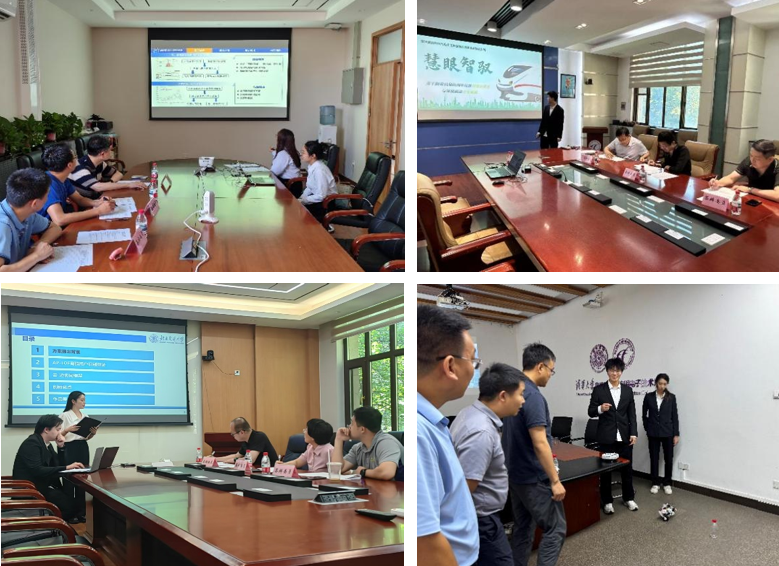On July 5, the semi-final of the 4th University Electrical and Electronic Engineering Innovation Competition (hereinafter referred to as the "Competition") was successfully held in the Department of Electrical Engineering and Applied Electronics (EEA) at Tsinghua University. The event was organized by the China Electrical Engineering Society, with Schneider Electric (China) Co., Ltd. as the strategic partner and Tsinghua University as the host, providing high-level academic support and organizational guarantees. After the preliminary selection, 51 teams from over ten universities in Beijing participated in the semi-final defense, with nearly 200 university students involved.

This year's competition, themed “Energy Transition and Technological Transformation under the ‘Dual Carbon’ Strategy,” closely aligns with national energy transition goals. It includes five core tracks: “Reliable and Safe Supply of Renewable Energy,” “Digital and Intelligent Energy Transformation,” “Improvement of Electrification in End-Use Energy,” “Other Free Topics,” and the “Schneider Electric Go Green Power Electronics Innovation Track.” The competition is mainly targeted at undergraduate students from universities across the country and aims to promote the integration of engineering education theory with practical engineering through exploratory hands-on practices, enhancing students' innovation abilities and their capability to solve complex engineering problems. It also encourages faculty to combine theoretical teaching with industry demands.

The semi-final stage employed a dual review process of “online written evaluation + offline defense.” The online evaluation for the Beijing Division was concluded on the morning of July 5. In the afternoon, teams were divided into five groups based on the registration details of each track. Each group was assigned three defense experts and provided with an independent defense venue and waiting area. Teams entered the defense venue sequentially to give their presentations, with the experts conducting a comprehensive evaluation based on communication skills, teamwork, completeness of the work, and the scope of the tasks. The final scores will be published on the official website of the University Electrical and Electronic Engineering Innovation Competition, with the top three teams in the Beijing Division receiving first, second, and third prizes. Award-winning projects will receive certificates from the China Electrical Engineering Society.
The competition officially launched on December 17, 2024. Tsinghua University, as one of the six founding units, played an in-depth role in the event's preparation and organization. Professor Kang Chongqing from EEA served as the chairman of the competition's guidance committee, while Professor Yu Xinjie served as the vice chairman and arbitration committee chair. Professors Zhu Guiping and Sun Kai served as the vice chairman and members of the academic committee, respectively, and Associate Professor Zhang Pinjia served as the deputy director of the competition organizing committee and the secretary-general of the guidance committee, ensuring the professionalism, fairness, and standardization of the event. To ensure the smooth operation of the competition, EEA took the lead in establishing the Beijing Division Organizing Committee, with Associate Professor Zhang Pinjia as the committee chair, coordinating the event preparation, review supervision, and logistical support. From the online written evaluation in the preliminary round to the offline defense in the semi-final, the organizing committee strictly followed the principles of “openness, fairness, and justice” to ensure that the achievements of each participating team were objectively evaluated.

















 News & Events
News & Events